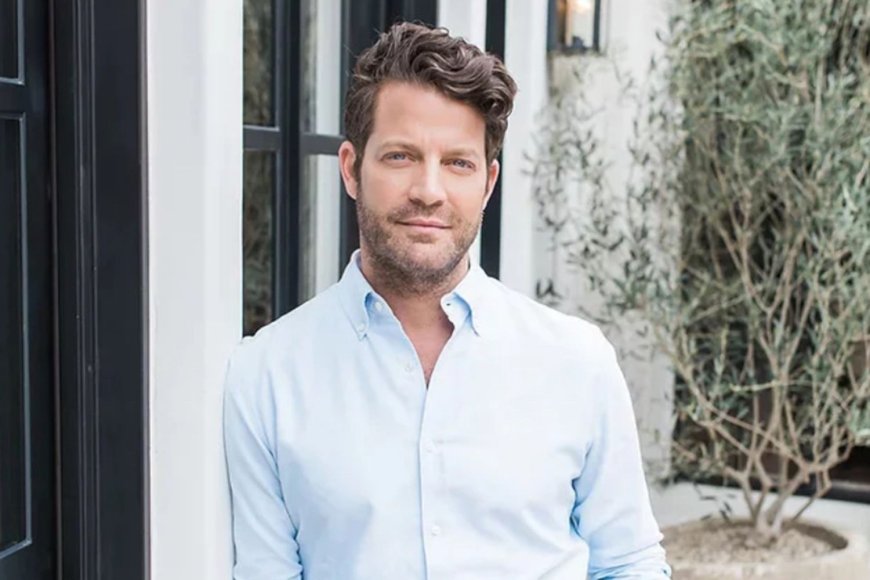Nate Berkus Opens Up About Grief Journey After Losing Partner in 2004 Tsunami — and Oprah's Advice (Exclusive)
"I wasn't eating, I wasn't sleeping," Berkus tells PEOPLE of the mountain of grief he stood to face twenty years ago

"I wasn't eating, I wasn't sleeping," Berkus tells PEOPLE of the mountain of grief he stood to face twenty years ago Ashley Burns Photography Nate Berkus :max_bytes(150000):strip_icc():format(jpeg)/Tsunami-Victims-100-112524-ad97afe25c9843fead6e58b84cc9ba67.jpg)
In December 2004, Nate Berkus traveled to Arugam Bay in Sri Lanka with his then-boyfriend, photographer Fernando Bengoechea, for a vacation.
Ten days later, Berkus returned home to Chicago alone. The couple had been caught in the tsunami that tore through Asia on Dec. 26 after a 9.1. magnitude earthquake struck just off the coast of Indonesia.
Berkus survived. Bengoechea's body was never found.
"I wasn't eating, I wasn't sleeping," Berkus, 53, tells PEOPLE exclusively in this week's issue, reflecting on the tragic event twenty years later. "I wasn't able to maintain a conversation." courtesy Nate Berkus (left) and his then-partner, Fernando Bengoechea, in an undated photo
Related: Jeremiah Brent Praises Nate Berkus' 'Strength' for Wading in the Ocean 17 Years After Tsunami
The interior designer and HGTV star credits trained professionals for helping him fight his way through the mountain of grief he stood to face. Without them, he notes, he wasn't sure he'd ever be able to "function" again.
"I didn't want to be weird," Berkus recalls confessing to his therapist. "I think it's such a case for admitting when you need help, admitting when, no matter who you are, that we find ourselves as people unable to cope, unable to understand, just unable to find the path again. Without the grief counselor and the therapist, I don't know that I would've ever returned to any semblance of who I was before."
In the days immediately after Berkus returned to Chicago, he also had to deal with his physical injuries, too. He was covered in wounds, and he remembers being conscious enough despite the "haze" to think to change his bandages.
"I had scars. I have scars still, not extensive, but if you know, you know. [They're] on my upper arms and on my legs," he says. He also remembers one of the first doctors he met with in Chicago asking to see the pills he'd been given while still abroad.
"He was like, 'Oh my God, you can't be on these. These are not okay,'" Berkus recalls, noting that the strength of the drugs were to blame for his fogginess.
As he endured his own devastation, Berkus also leaned on his dear friends, including none other than Oprah, who imparted a particular message he has yet to forget.
"Oprah came by and crawled in my bed, and I asked her why [this happened], and she said, ‘I don’t know, but the one thing that I will tell you is that I’ve always believed when the soul gets what it came to get, it goes,'" Berkus says of Oprah's wisdom. "I hung on that for a really long time."
Slowly but surely, Berkus found his way back to himself. He realized that the best way to honor Bengoechea's life was to continue living his own, which also meant never giving up on the idea of finding love again, either. Gary Gershoff/Getty Nate Berkus and Jeremiah Brent attend the Housing Works' 2023 Design on a Dime at Metropolitan Pavilion on April 20, 2023 in New York City
In 2014, Berkus married fellow interior designer Jeremiah Brent. The two share children Poppy, 9, and Oskar, 6, who carries Bengoechea's middle name as his own — a tribute that was Jeremiah's idea.
"Not a day has gone by since the day he and I were married 10 years ago that I haven't been grateful and known that I've been really blessed to have found the kind of love that Jeremiah and I share and created the family that we have," says Berkus, who also recently helped curate an exhibit of Bengoechea's work at the Cristina Garjales Gallery in New York City.
For more on Nate Berkus's account of the 2004 tsunami and other survivor stories, pick up this week's issue of PEOPLE, on newsstands Friday, or subscribe.
Some two decades later, Berkus still finds himself thinking back to the search and rescue efforts that persisted in the wake of the tsunami, too.
Every time a helicopter took off in search of Bengoechea, Berkus made sure that the aircraft was also equipped with plenty of supplies for the people in the area where it would land. He approaches life with the same philosophy today.
"A sentiment that governs almost everything I do is, 'How can I leave this place better than I found it?'" Berkus says. "Twenty years later, that is what stays with me the most."


























































